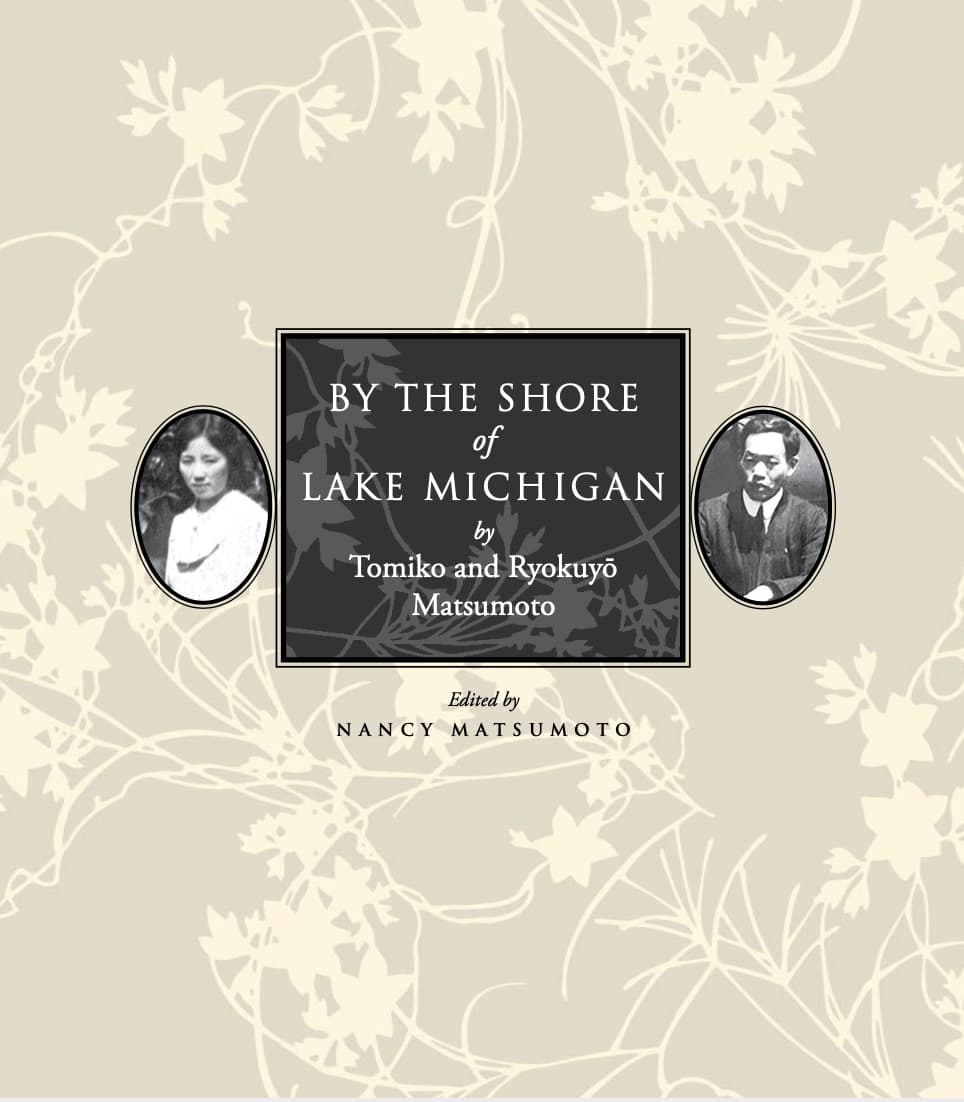
By the Shore of Lake Michigan, a translation of WWII-era Japanese concentration camp poetry, recovers the lost voices of Japanese immigrants.
Los Angeles, CA, United States, October 2024, Contact: aascpress@aasc.ucla.edu
 By the Shore of Lake Michigan, Tomiko and Ryokuyo Matsumoto's collection of Japanese tanka poetry, is now accessible to English-language readers for the first time. The volume offers a rare look into the inner lives of an often-overlooked generation during the most difficult period of their lives.
By the Shore of Lake Michigan, Tomiko and Ryokuyo Matsumoto's collection of Japanese tanka poetry, is now accessible to English-language readers for the first time. The volume offers a rare look into the inner lives of an often-overlooked generation during the most difficult period of their lives.
In 1960, the Matsumotos, Issei (first-generation) immigrants, published their collection, Mishigan Kohan/By the Shore of Lake Michigan. Their tanka — a traditional form of Japanese poetry — chronicled their lives over a seventeen-year period, from their 1942 forced relocation from Los Angeles to the Heart Mountain, Wyoming prison camp, through their resettlement in Chicago at war's end.
Tomiko and Ryokuyo's immersion in the U.S.-Japan tanka world of their time led to the selection of one of Tomiko's poem's to be read at the Emperor's annual poetry party in 1955, then to the publication of their poetry collection.
While many second- and third-generation Japanese American voices have told the story of the wartime incarceration in fiction, essays, on stage, and in film, very little of the voluminous Japanese-language writings of this era have been translated into English. By the Shore of Lake Michigan is a rare and frank account of the tumultuous events of World War II and its aftermath, from an Issei point of view.
Nearly fifteen years in the making, the book is a collaboration between editor Nancy Matsumoto (granddaughter of Tomiko and Ryokuyo) and accomplished translators Mariko Aratani (The Ink Dark Moon) and Kyoko Miyabe. Ranging from the lyrical to the objective, the political to the deeply personal, the poems trace the Matsumotos' passage through the darkest chapter of Japanese American history, the unconstitutional incarceration of 120,000 people of Japanese descent.
Included are a foreword by Nancy Matsumoto; an introductory essay by Eri F. Yasuhara, dean emerita, California State University San Bernardino; and annotations providing historic, cultural, and literary insights into the poems.
Tanka is the oldest form of Japanese poetry, and the most beloved and widely practiced genre today. Five lines in length, with a 5-7-5-7-7 meter, it is two lines longer than the haiku format. Unlike haiku, which usually describes nature, the passing of the seasons, and the feelings they evoke, tanka can cover any topic the writer would like to address, from politics and public events to the most personal and private of feelings. It was a form ideally suited to Issei immigrants who gathered in after-work poetry salons to discuss tanka and share their poems with each other, and an important outlet for the feeling of loss, dislocation, shame, and trauma they experienced during and after their unjust World War II incarceration.
Book Details
Title: By the Shore of Lake Michigan
Authors: Tomiko and Ryokuyo Matsumoto
Editor: Nancy Matsumoto
Translators: Mariko Aratani, Kyoko Miyabe
Order Online at https://commerce.cashnet.com/aasc
Release Date: October 2024